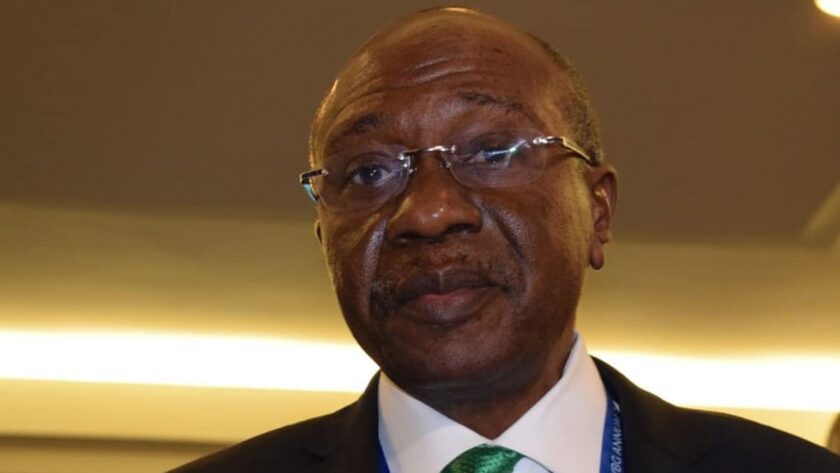Macroeconomic Uncertainty: Nigeria’s External Reserve Plunged 10%
Uncertainty in the macroeconomic environment affected the Nigerian external reserve which has plunged 9.7861% year to date as a result of weak revenues and foreign investment inflow into the economy.
Data from the Central Bank of Nigeria (CBN) shows that the nation’s external reserves printed at $34.825 billion at weekend from $38.595 billion at the end of 2019.
Read Also: FPI Claims, Swaps Reduce Nigeria’s External Reserves to $16.2bn
Total receipts into the economy has remained weak from foreign investment inflow and weak receipt of oil exports revenue in particular.
Foreign receipts from external trades have been pressured in recent time, from unstable movement in global oil prices and volume of oil production as well as supply.
The outbreak of coronavirus pandemic exacerbate pressure on petrol-dollar driven Nigerian government’s revenue amidst growing debt profile.
This is coming just at the time that analysts are projecting lower global remittance inflow into Nigeria due to global economic lockdown/
At the last count the second quarter of 2020, the nation’s debt printed at N31.01 trillion or $85.9 billion.
Of this bucket, local debt accounted for N15.455 trillion with Federal Government bonds accounting for 72.73%, Treasury Bills 17.86%, Promissory notes 6.16%, Sukuk 2.35%, Green bond 0.17% and Treasury bond 0.65% and savings bonds 0.08%.
Total of $31.447 billion is owed to external creditors comprises multilateral, bilateral and commercial lenders.
Of the sum, Nigeria’s exposure to multilateral institutions printed at 51.97% in June, 2020 followed by 35.48% owed to commercial creditors – Diaspora and Eurobonds.
The remaining 12.54% were from Bilateral creditors including Exim Bank of China $3.24billion, Agence Francaise Development $403.65 million, Japan International Cooperation Agency $76.79 billion, Exim Bank of India $34.87 billion and Kreditanstalt Fur Wiederaufbua $192.71 billion.
Analysts have however projected an uptrend in the nation’s debt book aftermath of the global covid-19 borrowings.
Meanwhile, uncertainties in the domestic economy has continued to wave off investment inflow by greater extent.
Most notable domestic issues facing the economy cited by analysts has been scarcity of foreign exchange scarcity.
Naira has plunged significantly due to weak external reserve, and reduce CBN foreign currency war chest to support the local currency.
This has widened gaps between official and parallel market rates, with possible currencies arbitrage risk soaring in the economy.
Foreign exchange scarcity, technically, have locked down foreign investors from exiting the economy following the Nigeria’s central bank capital control strategy.
Read More: Capital import declines as investors engrave in low beat sentiment
According to data from the National Bureau of Statistics, total amount of foreign investment inflows into the economy plunged 74% to US$1.46 billion in Q3-2020 from US$5.63 billion in Q3-2019.
The breakdown of the data showed that the largest amount of capital importation was received through other investment, which accounted for 43.75% (US$639.44m) of total capital importation.
This was followed by Foreign Direct Investment (FDI), which accounted for 28.38% (US$414.79m) of total capital imported and Portfolio Investment which accounted for 27.87% (US$407.25m) of total capital imported in Q3 2020.
By Destination of Investment, Lagos state received the highest quantum of capital investment in Q3 2020 with US$1,208.74m, accounting for 82.71% of the total capital inflow in Q3 2020.
The reduction in foreign inflows was largely driven by 86.5% decline in portfolio investment and a 73.3% decline in other investments.
Analysts think the decline in portfolio investments was due to lower inflows in equities (-88.6% y/y) and money market instruments (-85.8% y/y).
There were no investments in bonds in Q3 2020 compared with US$91.6m in Q3 2019. Interestingly, FDI’s increased significantly, up 100.8%y/y and 179% quarter on quarter.
The increase in FDI in Q3 were mainly through equity investments.
“In our opinion, the longer term prospects for FDI can only be realized with the implementation of pro-business policies, structural reforms and improved infrastructure”, CSL Stockbrokers said in a note.
The firm explained that the decline in portfolio investment in Q3 remains reflective of global risk-off sentiment towards EM assets due to elevated vulnerabilities brought by the outbreak of COVID-19 which led to a steep fall in commodity prices.
Analysts recalled the sharp decline in oil prices triggered by faltering global demand for crude has led to subsequent devaluations in the local currency.
Faced with a surge in the demand for dollars by FPIs who want to repatriate their funds, the CBN has been unable to meet demand.
Going forward, analysts at CSL Stockbrokers think portfolio inflows will remain depressed in the short term.
The firm also think that any improvement will be dependent on improvement in external factors namely crude oil prices, developments on the global pandemic and the ability of the government to come up with pro-business policies.
Greenwich Trust Limited said in a macroeconomic note that capital inflows continued to perform poorly, a strong reflection of weaker confidence in the economy, as upside risks, like the high level of insecurity and political instability, hampers capital inflows.
This, together with the dearth of structural and market reforms, infrastructural gap, FX challenges, higher inflationary pressures further exacerbated by the ongoing pandemic, further raises barriers to foreign flows into the economy.
As a result, investment is set to slow in the coming quarters.
“In our opinion, the lower capital inflows, underscores the need for broader reforms to shore up foreign investment; liberalisation of capital-intensive industries; clarification on regulatory and tax issues; sustainable exchange rate policies; political stability; and the ease of doing business.
“While several policies are being re-visited to reduce Nigeria’s reliance on Foreign Portfolio Investments from developed markets proper positioning of the Nigerian economy should strengthen foreign inflows, particularly for Foreign Direct Investments.
“Longer term capital flows – FDIs – will also minimize the volatility in the FX as well as accelerate economic growth and development”, Greenwich Trust stated.
Macroeconomic Uncertainty: Nigeria’s External Reserve Plunged 10%

